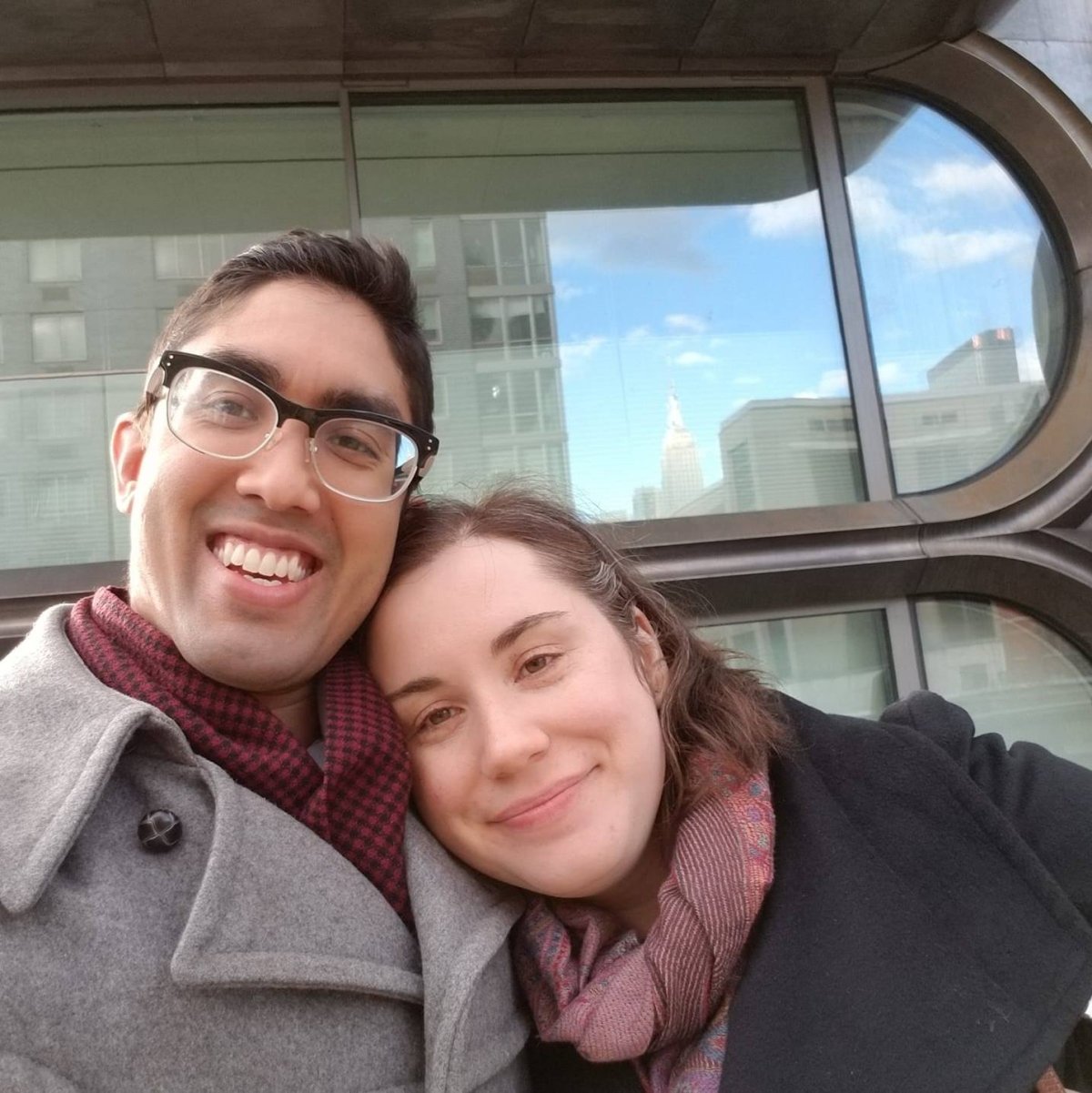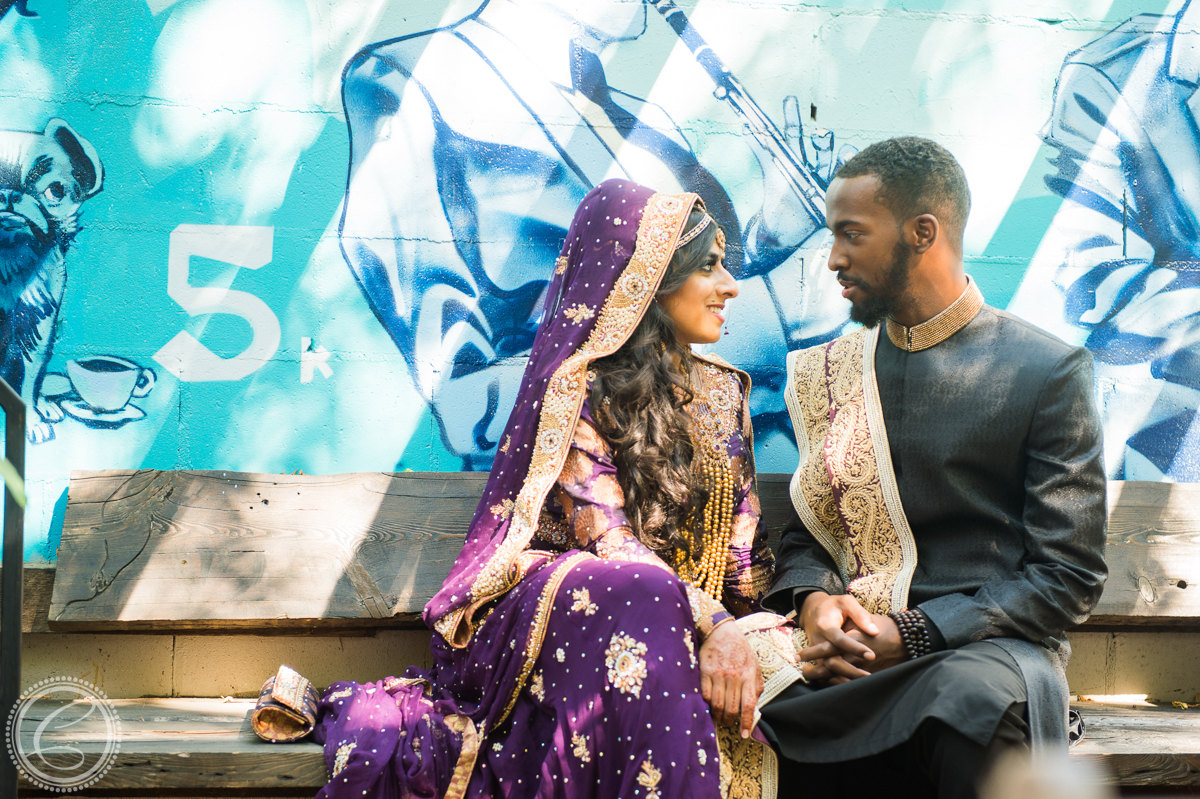At least 15 per cent of Canadians would never have a relationship with someone outside their race, according to an exclusive poll by Ipsos for Global News.

The poll found participants with only a high school education (20 per cent) and Ontario residents (19 per cent) were more likely to share this point of view.
All of the Ipsos poll data is available online.
Natasha Sharma, a relationship expert and creator of The Kindness Journal, told Global News that in large, diverse urban centres like Toronto or Vancouver, being in an interracial relationship is less shocking than it is in rural and suburban neighbourhoods.
“Interracial marriages in Canada are more common than ever and, potentially, on the rise,” she said.
WATCH: How race shapes personal relationships in Canada

According to the 2011 National Household Survey, 4.6 per cent of all married and common-law couples in Canada were mixed unions — that is, about 360,045 couples. Out of that number, 3.9 per cent of all couples had one person who was a visible minority and one who was not, while 0.7 per cent of all couples included two people from different minority groups.
The data also found some groups were more likely to be in mixed unions compared to others. That year, Japanese individuals were most likely to be in an interracial relationship, followed by Latin Americans and black people. However, two of the largest visible minority groups in Canada — South Asians and Chinese — had the smallest number of couples in mixed relationships.
READ MORE: 1 in 4 Canadians say it’s becoming ‘more acceptable’ to be prejudiced against Muslims — Ipsos poll
Sharma added that while interracial relationships are more generally accepted than they have been in years prior, in some communities and more remote areas in the country, she can see why these types of relationships wouldn’t work.
- Gas prices surge in some parts of Canada. What’s causing pain at the pumps?
- ‘She gets to be 10’: Ontario child’s heart donated to girl the same age
- Bird flu risk to humans an ‘enormous concern,’ WHO says. Here’s what to know
- Buzz kill? Gen Z less interested in coffee than older Canadians, survey shows
“Unfortunately, it is still too difficult for some parents or in-laws to accept, and family estrangement on this basis still happens today,” she said. “This can be incredibly painful for all involved, and especially the married couple.”
Preference vs. prejudice
Diversity researcher, writer and lawyer Hadiya Roderique told Global News the results from the poll don’t surprise her.
“You could say that it might be higher in some cases because people could be impacted by social desirability,” she said.
She explained that often in narratives of interracial relationships, there is the idea that people prefer one race over another — and these people claim they are not being racist.
She added some minority groups would not want to date outside their race. A Black person, for example, may be more comfortable with a Black partner who understands anti-Blackness or other experiences faced by Black people.
Roderique said but sometimes, it comes down to prejudice.
WATCH: Interracial couple evicted from property because husband is black

“There’s a difference between preference and prejudice,” Roderique said. “The difference is the word ‘never.’ It is ruling out the possibility that you could ever be attracted to someone from a different race.”
READ MORE: Nearly 50% of Canadians think racist thoughts are normal — Ipsos poll
She added there is a clear difference between saying, “I would never date a blond versus I prefer brunettes.” In one case, she explained, a person is implying they would never date someone who has blond hair, no matter the circumstance. This is often the conversation people have when they talk about race, experts added.
“‘I would never date a Black person’ is very different from saying, ‘I have never dated a Black person,'” Roderique said. The other thing about preferences, she added, is that they are not purely biological.
“Our social world plays a very important role in determining what we like and what we don’t like in a variety of things.”
This even comes down to what we find attractive — or what society tells us is attractive — and how we relate this to our dating lives.
“That’s why we have things like anti-Black racism… We’re given messages all the time… Even in the Black community, people will be anti-Black,” she said.
Countless reports have touched on a race hierarchy when it comes to dating. Writer Yassmin Abdel-Magied previously wrote that Black women and women of colour have a place in society’s ‘desirability’ hierarchy.
“And that’s, sadly, right at the bottom. Put simply, Black women — and especially dark-skinned black women without Eurocentric features — are rarely ever seen or depicted as desirable,” she wrote in the Evening Standard.
WATCH: Interracial marriages: Expressing love in the face of prejudice
Even dating sites like OkCupid have pointed out how some races are more desired than others. According to a 2014 report by NPR, data showed that most straight men on the app rated Black women as less attractive compared to other races.
And when we continue to get these types messages through dating, pop culture or even through family, Roderique said it can sway someone’s decision on who they will and won’t date.
“We can’t ignore the social roots of attractiveness and also the messaging we get on what and who is attractive,” she said.
Navigating an interracial relationship
There’s also the issue that interracial dating may just make some people feel uncomfortable, Sharma added.
“Whenever a person is uncomfortable, it’s generally because they encounter something unfamiliar and are unwilling to ‘try it out’ to confirm that there is nothing to be afraid of,” she explained. “Some people walk through life with very rigid beliefs and biases and look for cues and signs that only confirm these beliefs/biases and discard information that would contradict them. It’s not a very open-minded — or enlightened — way to live life.”
Sarah Sahagian of Toronto met her partner Brandon, who is Indian and Chinese, when she was 31.
The 33-year-old, who is of English, Scottish and Armenian descent, said Brandon wasn’t the first person of colour she dated, but all her serious relationships had been with white men.
“Brandon was, therefore, the first non-white guy I brought home to meet my family,” she said. “My parents and siblings immediately loved him. However, my grandfather, who has now passed, probably wouldn’t have.”
She said that while she does miss her grandfather, the reality is he would not have accepted their relationship.
READ MORE: Living In Colour returns to talk interracial marriage, cosplay, incarceration and employment
“It saddens and sometimes enrages me to realize he might not be happy for me if he were alive to attend our impending wedding,” she said.
Sahagian said living in a city like Toronto helps — the two hardly get side-eye as an interracial couple.
“However, we have noticed that when we leave the city, we can get glares and even some racist comments thrown our way,” she said. “I know there are racist people in Toronto… However, the high number of interracial couples make us less remarkable. We blend in and do not usually attract a specific person’s ire.”
Making the relationship work
Henna Khawja, 32, and Ryan Hilliard, 33, have been married for five years. Khawja, a Muslim-Pakistani woman based in Toronto, said both her and her husband’s African-American family were surprised when the two decided they wanted to get married.
“On top of the differences in ethnicity, our families also practised different religions, and they lived in different countries,” she said. “My parents have a typical South Asian immigrant experience of arriving in Toronto in the late ’60s, while his parents have a historical African-American experience. Both sides have their own unique narratives of displacement, migration and intergenerational trauma.”
Khawja said it was “a fight at times” because both of their parents were so unfamiliar with the other’s race. But for them, religion played a large role in making it work. About 13 years ago, Hilliard converted to Islam from Christianity after being raised in an African Methodist Episcopal church.
“Religion played a huge role in our story,” she continued. “It was what we connected on and what has kept us together through the most turbulent times of our relationship thus far.”
In the end, this also helped the families accept their union.
“His parents respected that he was marrying a Muslim woman, and my family accepted that I was marrying him, despite the differences in cultural identity,” she said. “We had five events to celebrate our union in both Toronto and Chicago spanning across seven months, both communities in attendance to celebrate our Pakistani and African-American traditions.”
Couples dealing with the struggle
It may have worked out for Khawja and Hilliard, but for some people in interracial relationships, it can be a struggle to get your family on board.
Khawja said she and her husband often get asked for advice, and her response is: always be honest.
“It is not easy. It will be a battle, you may lose loved ones in your life, and it is up to you both to decide whether or not it is worth the fight,” she explained. “For us, it was not an option to marry without the blessings of our parents, and although it took time, it was worth it for us. We feel blessed and grateful as a result. For others, we recognize approval may never be an option, or it may not be a safe option.”
READ MORE: 37% say immigration is a ‘threat’ to white Canadians — what’s the threat, exactly?
Sharma said you should always remember you are marrying a person, not a family.
“Set appropriate and healthy boundaries with all family outside your marriage, and make sure your partner does the same,” she said. “If there’s family tension, be reasonably sure before you marry that you and your partner will put each other first, and step up with healthy boundaries with family.”
Methodology: These are the findings of an Ipsos poll conducted on behalf of Global News between April 8 and 10, 2019. For this survey, a sample of 1,002 Canadians from the Ipsos I-Say panel was interviewed. The precision of online polls is measured using a credibility interval. In this case, the results are accurate to within +/- 3.5 percentage points, 19 times out of 20, of what the results would have been had all Canadian adults been polled. The credibility intervals are wider among subsets of the population.






Comments